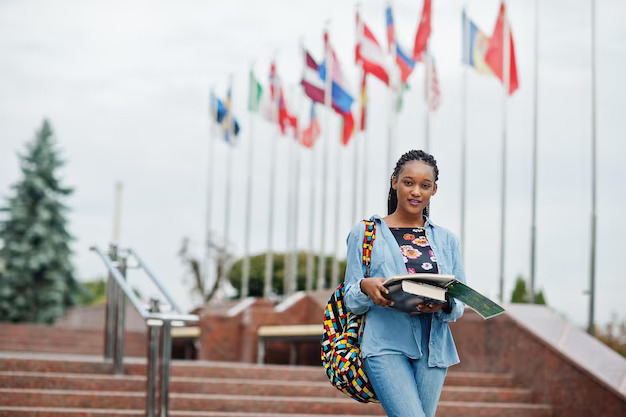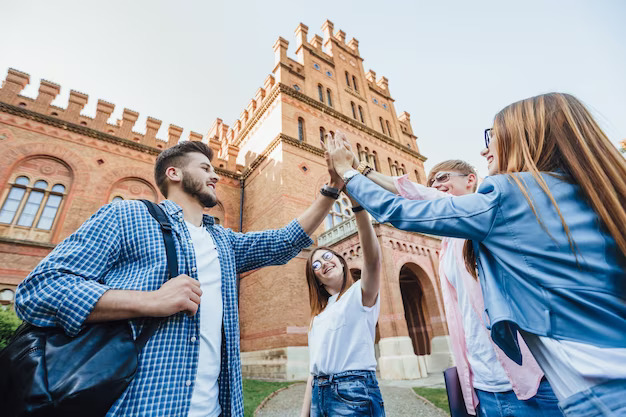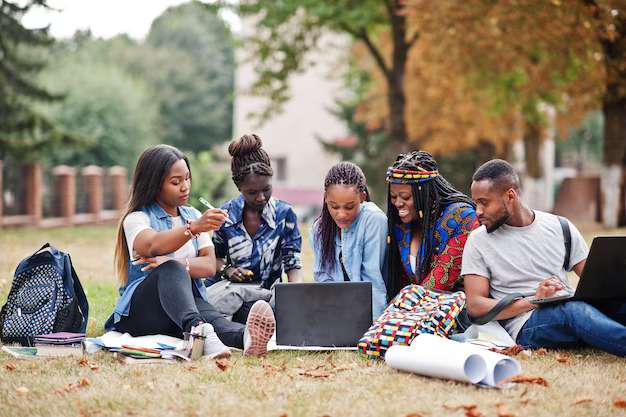A Sarala School Education
The purpose, aim, and drive of these educational institutions are to equip the child with excellent technological proficiency, enabling clear and efficient functioning in the modern world. Far more importantly, the goal is to create the right climate for the child’s full development as a complete human being. This involves providing the opportunity for the child to flourish in goodness, fostering the right relationships with people, things, and ideas, encompassing the entirety of life. Living is inherently tied to being related, and there can be no true relationship without the right feeling for beauty, a responsive connection to nature, music, and art, and a highly developed aesthetic sense.

The radical intentions of 'Sarala' mean that a broad and interconnected curriculum has been developed. This dynamic element of school life is driven by questions and concerns such as the following:

NATURE
Nature is life, but our alienation from the natural world and our destruction of it now constitute a major global crisis. What can the educator and student do to address this?

RIGHT LIVELIHOOD
What is Right Livelihood in a world fraught with competitive self-interest and destructive behaviour? What is the place of talent and passion in the discovery of this?

Excellence
The pursuit of Excellence can create a culture of comparison, stress, fear and obsessive perfectionism; can an educator avoid these pitfalls, but nurture the student’s abilities to the full?

Knowledge
Knowledge is critical to human existence, but it is also limited, incomplete and conditioned. What does this mean for learning and for life?

NATURE
NATURE
Nature is life, but our alienation from the natural world and our destruction of it now constitute a major global crisis. What can the educator and student do to address this?

RIGHT LIVELIHOOD
RIGHT LIVELIHOOD
What is Right Livelihood in a world fraught with competitive self-interest and destructive behaviour? What is the place of talent and passion in the discovery of this?

Excellence
Excellence
The pursuit of Excellence can create a culture of comparison, stress, fear and obsessive perfectionism; can an educator avoid these pitfalls, but nurture the student’s abilities to the full?

Knowledge
Knowledge
Knowledge is critical to human existence, but it is also limited, incomplete and conditioned. What does this mean for learning and for life?
Common Courses
Students engage in common courses, participating in weekly activities such as Inquiry Time, Human Ecology, ATWAM, and Sports.
Inquiry Time is the time in the week when the whole school meets and looks deeply into the intentions of Sarala together: what it means to live together well, to understand our own reactions and behaviour. Inquiry Time often includes an investigation of teachings and their implications for our daily lives. Topics are chosen by students and staff who meet earlier in the week to discuss what is most relevant for the community at that time. We cover topics such as identity, authority, fear, responsibility, society and freedom. Inquiry Time runs for half a morning, once a week.
Human Ecology is dedicated to exploring our place in the natural world. Running for half a morning every week, the course has three main aims:
- Learning how to cultivate organic fruit and vegetables in our one-acre walled vegetable garden.
- Exploring local and global environmental issues and reflecting on their root causes.
- Understanding what it means to be in direct contact with nature — relating to it with the whole body.
"Physical activity plays an important role in the Sarala School curriculum.
Sports and physical activity play an important role in the curriculum. Three times a week, in the afternoon, the whole school participates in various sports and physical activities. Currently, the most popular sports include football and ultimate frisbee, and throughout the year, other games such as badminton, basketball, volleyball, cricket, and tennis are offered. Additionally, a range of physical fitness activities like yoga, dancing, hiking, swimming, running, slacklining, movement, and games are available. Facilities include a full-sized football pitch, a combined tennis and basketball court, indoor spaces for dance, movement, and yoga, as well as a small indoor gym.
While promoting cooperation and giving one’s best, the school emphasizes an approach beyond competitiveness in team sports. Most team sports are played with groups of mixed abilities and experience (and often mixed-gender). The focus is on learning how to play well together, with the aim of challenging oneself and enjoying the activity for all participants.
Students inclined towards sports and physical education are encouraged to actively participate in the organization, coaching, and coordination of sports. Yoga and other gentle forms of movement are regularly incorporated into the schedule, taking place during sports sessions, in the early mornings, and at other times throughout the week. These activities aim to foster the development of sensitivity, suppleness, and awareness of the body.
ATWAM, which stands for ‘Another Time We All Meet,’ serves as an open learning space where the entire school is exposed weekly and in-depth to a diverse range of topics. These may encompass current affairs, environmental issues, neuroscience, technology, nutrition, health, personal finance, mental health, relationships, and sex. The learning experience involves inviting specialized speakers to give talks and engage with students and staff on these subjects, or conducting in-house presentations presented by staff and students. This refreshing and vital component of the curriculum plays a significant role in helping students and staff develop a global outlook.
For Younger Students
‘Sarala’ has long embraced the idea of students constructing their own individual learning program each year, with support from their student adviser. For students under 16, this is further reinforced by a requirement to choose at least one course in each of the following broad areas of study: Humanities, Art, Music & Drama, Science, Maths, Health & Movement, and English. The intention of these courses is to allow students to develop foundational skills by being exposed to a range of learning perspectives, and to enable them to explore, experiment, and find their own motivation and agency in learning.
Students also learn to organize their work outside of class during Study Hall, with the support of their weekly student advising sessions and by utilizing the Study Skills Classroom. Throughout the year, students at ‘Sarala’ are encouraged to present their work in their classes, during whole-school Class Showback events, and in school assemblies.

Sarala School Courses
These courses cover a wide range of disciplines from which a student can build their learning programme for the year. We make a distinction between academic and hands-on courses. It is part of the student adviser’s role to ensure that their students have a balanced timetable, in support of the first intention of the school. We offer academic courses in subjects such as Computer Science, Humanities, Global Issues, Science and Maths, and hands-on courses in fields including Photography, Pottery, Graphic Design, Woodwork and Life Skills (Kitchen or Garden).
English Programme

Students at Sarala School speak a wide variety of languages and have different levels of proficiency in English. To meet this diversity, the English courses are necessarily student-tailored. Non-native speakers focus on learning vocabulary, pronunciation, grammar and syntax. Students with an intermediate or advanced level of English – including native speakers – develop their language skills through the study of literature, drama and poetry. Experiential learning is at the core of our approach to language acquisition, and our classroom can open into any area at Sarala and beyond, including the outdoors.

Exam Subjects
"We offer a range of subjects which follow the syllabuses and examinations from Cambridge International Education.
If students are seeking standard qualifications, ‘Sarala’ offers a range of subjects following the syllabuses and examinations from Cambridge Assessment International Education (CAIE), Oxford, Cambridge and RSA (OCR), and Assessment and Qualifications Alliance (AQA). These A level qualifications are of a high standard, recognized globally by universities and requiring a two or three-year commitment. Typically, interested students take one, two, or three A levels, intended for those aged 16 years or over. Non-native speakers are recommended to have a very good level of English before starting an A level course.
The exam subjects taught at ‘Sarala Sarala’ may vary from year to year depending on interest, but there are always options in the Sciences, Humanities, and the Arts. Exam subjects currently on offer include Art & Design (Fine Art, Photography, Graphic Communication), Biology, English Literature, Geography, Mathematics, and Physics.
On rare occasions, a student may wish to study for an A level in a subject not taught at ‘Sarala School’. In such cases, if the student is sufficiently motivated and able, they may choose to self-study the subject. However, the school cannot offer taught classes in these subjects, and while it may be possible to arrange tutorial support, this cannot be guaranteed. If the A level subject is not a syllabus offered by one of the three exam boards ‘Sarala School’ works with, the student must register for and take the examination at an alternative institution, involving the payment of fees to that institution.
Projects
A core element of the curriculum at ‘Sarala Sarala’ is the Project Programme, offering support for students developing their projects based on a topic or question of their choosing. Support is provided through group and one-to-one mentoring, guidance with project structuring, and assistance with time management, research, and presentation skills. The intention is to encourage students in their self-led exploration, deepen their love of learning, and hone their study skills.
These projects may be academic, practical, or a blend of both. Some students work on a small project alongside their other studies, devoting one morning a week in their timetable to it. Older students may prioritize it more, developing their project into a substantial body of work or portfolio for university and college interviews, work internships, or employment. Such portfolios can support other qualifications or sometimes be considered sufficient on their own. A project is a substantial commitment, requiring a deep interest in the topic, competence in basic study skills, and dedication.
All students present their work-in-progress to the school in the second term and their final work at the end of the year.
"This programme offers support for students developing their own projects.

Becoming a student at ‘Sarala School’ means transitioning to a new place, often far away from home, family, and friends. This brings new responsibilities and challenges to a young person’s life, fostering increased levels of self-reliance. With the stimulating and supportive environment offered by the school and its atmosphere of care, affection, and informality, students quickly come to regard ‘Sarala School’ as their second home. Students and staff address each other by first names; there are no uniforms, and the dress code is ‘tidy casual’.
Student Advising
Every student at ‘Sarala School’ has a student adviser. Responsible for a group of about five to seven students each, student advisers oversee the overall educational progress and well-being of their students in cooperation with the curriculum and pastoral teams. The adviser/student relationship is seen as a collaborative inquiry into motivation, self-discipline, and the nature of learning as a whole, including academic learning. Initially, they discuss academic plans and objectives and develop a timetable together. Each timetable reflects the individual student’s interests; students are not expected to fit into a pre-existing mold. Time and care are taken to ensure that each timetable is balanced, so that students are challenged and exposed to new areas of learning while developing their strengths and interests. Through weekly group and one-to-one meetings, the adviser engages with the student throughout the year, exploring important questions about what it means to learn. The student is supported to develop a spirit of independence, resilience, and autonomy in learning. Each student is taught about documenting their work and encouraged to develop study and presentation skills. All students are regularly encouraged to share what they have learned.